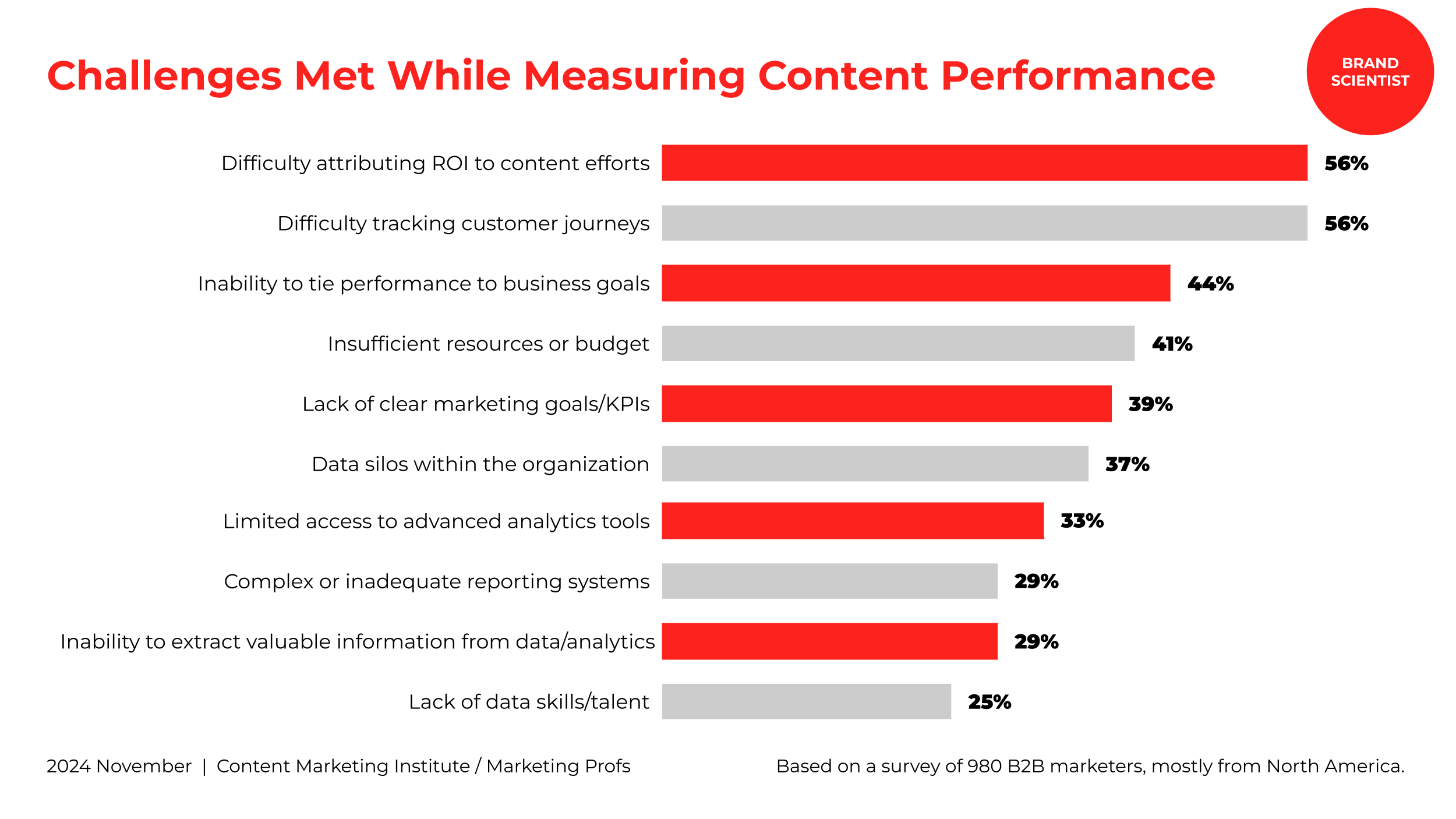Tracking And Attribution Top B2B Marketer Challenges
The vast majority (96%) of B2B marketers track their content performance, according to the latest B2B content marketing report from the Content Marketing Institute and MarketingProfs. However, while measurement is widespread, effectiveness remains a challenge. Only about half (51%) of marketers believe their organization measures content performance effectively, while 34% disagree and 15% remain neutral. This suggests that despite having tracking mechanisms in place, many marketers struggle with actionable insights.
The two most significant challenges in measuring content performance are difficulty attributing ROI to content efforts and tracking customer journeys, each cited by 56% of respondents. These challenges are not new—B2B marketers have struggled with proving content ROI for over a decade, with efforts to better map content to key stages of the customer journey dating back to at least 2015. A lack of data skills is not the primary issue (only 25% report it as a challenge); instead, insufficient resources or budget (41%) is a bigger constraint.
Despite these hurdles, B2B marketers still see value in content marketing. Nearly 87% believe content has been successful in driving brand awareness over the past year, an increase from last year’s 84%. Content marketing also continues to be effective for generating demand and leads (74%) and nurturing audiences (62%). However, fewer marketers are confident in content’s ability to drive sales or revenue—only 49% say content has successfully generated revenue this year, a drop from 58% last year.
These findings highlight the ongoing struggle to connect content marketing efforts directly to business outcomes. While brand awareness remains a clear strength, B2B marketers must improve measurement techniques and attribution models to demonstrate content’s full impact on revenue generation.
Key Actionable Takeaways:
Improve ROI Attribution Models – Invest in better tracking tools and methodologies to connect content efforts directly to revenue outcomes.
Enhance Customer Journey Mapping – Develop detailed journey maps to understand how content influences prospects at different stages.
Prioritize Performance Metrics That Matter – Focus on key indicators like engagement, conversion rates, and pipeline influence rather than just vanity metrics.
Leverage Advanced Analytics Tools – Utilize AI-driven analytics or marketing attribution platforms to gain deeper insights into content performance.
Optimize Content for Lead Nurturing – Create content tailored to move prospects through the funnel, making it easier to measure its impact.
Align Sales and Marketing Data – Improve integration between marketing and sales teams to track how content contributes to closed deals.
Allocate Resources Wisely – Given that budget constraints are a challenge, focus spending on content initiatives with the highest proven ROI.
Experiment with New Attribution Models – Test multi-touch attribution or marketing mix modeling to get a more accurate picture of content effectiveness.
Regularly Audit and Optimize Content Strategy – Continuously refine content approaches based on performance data to maximize results.
Communicate Content Value to Leadership – Use clear data-driven insights to demonstrate content’s business impact and justify further investment in content marketing efforts.
